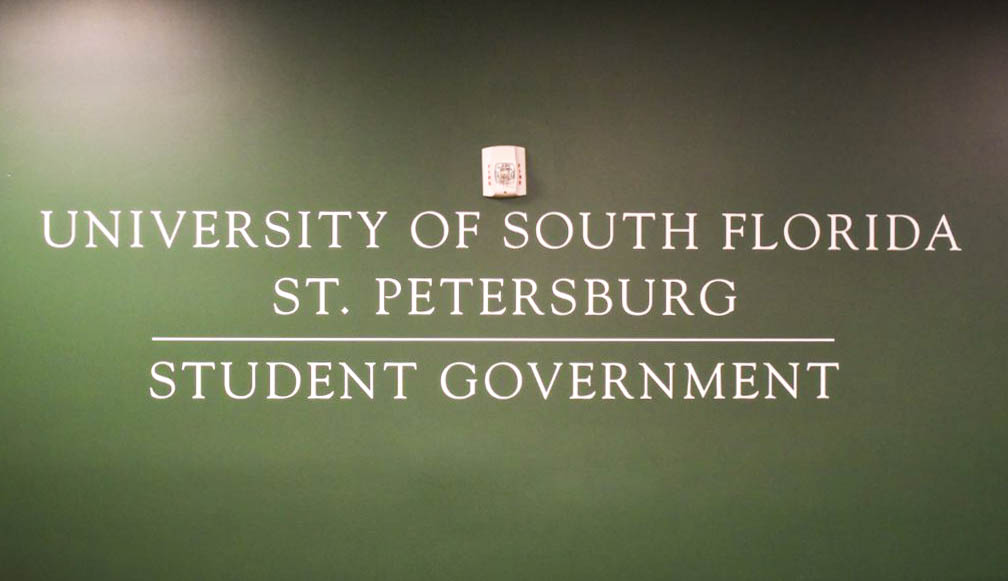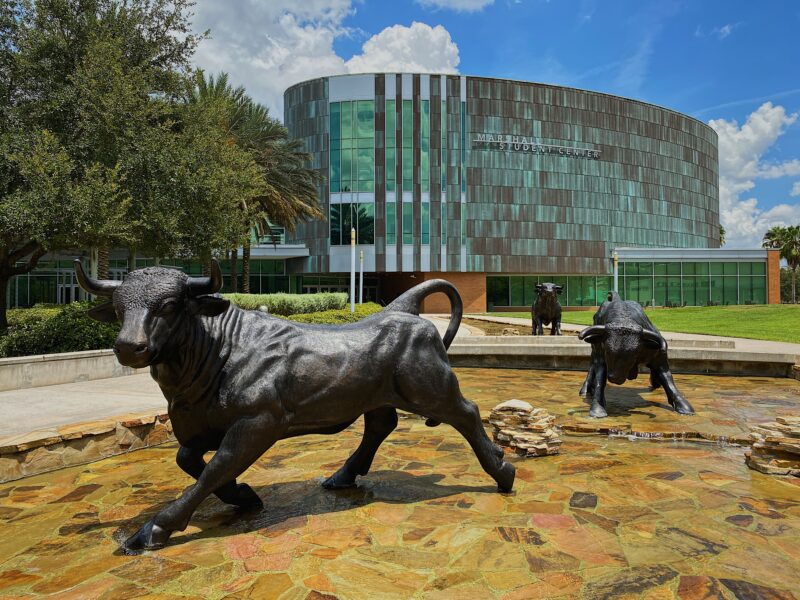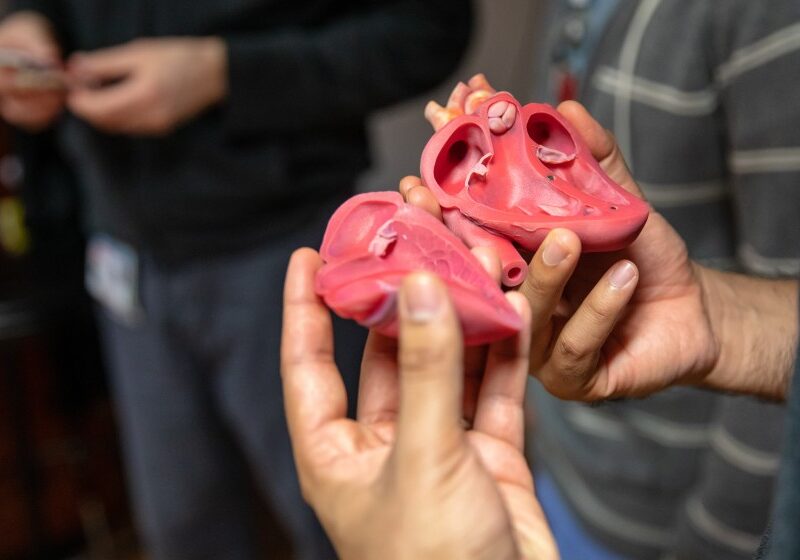Pictured above: This year, SG’s budget request has declined to $142,464 — a 32 percent decrease when accounting for the funds no longer available from the reserves.
Anna Bryson | The Crow’s Nest
By Katlynn Mullins
With the first consolidated Student Government election underway, SG leaders across all three USF campuses are still figuring out how they will fund the new, unified entity.
But St. Petersburg’s SG is already planning for widespread cuts, although the size of the cuts are bound to change as the budget moves through the approval process.
Last year, SG allocated itself a total of $209,845 for operations and salaries — $115,167 from student fee revenue and $94,678 from leftover reserves, according to Bob Herron, assistant director of student government advising, training and operations.
With almost all of the reserves depleted, they are no longer a substantial source of funding.
This year, SG’s budget request has declined to $142,464 — a 32 percent decrease when accounting for the funds no longer available from the reserves.
Compounding the problem is the fact that student fee revenue projections for this campus have not yet been provided by university administration, which expects a decline in enrollment next year.
According to SG statutes, the student body president was required to request the revenue projections in the last week of January. But the projections likely won’t be available until mid- to late March, according to Dwayne Isaacs, director of Student Life and Engagement.
And although St. Petersburg’s SG plans to increase its number of paid employees, that number is still only an “educated guess,” Isaacs said.
“None of the USF SG system leaders know exactly how they will compensate all of their leaders,” Isaacs wrote in an email to The Crow’s Nest on the morning of Feb. 28.
The task force responsible for outlining the budget process for a consolidated SG met on the evening of Feb. 28, but Isaacs and SG leaders did not respond to an email from The Crow’s Nest seeking details from the meeting.
Chief Legal Officer Trevor Martindale told The Crow’s Nest on Feb. 25 that he expects the process to be finalized “within the month.”
Because enrollment is declining, SG has asked each organization on the St. Petersburg campus that gets student fee revenue to cut its annual request by at least 10 percent. Those organizations include SG, Campus Recreation, the Office of Multicultural Affairs, the Office of Leadership and Student Organizations, Harborside Activities Board and The Crow’s Nest.
SG Vice President Hannah Rose Wanless and Chief Financial Officer Brandon Castle presented SG’s budget proposal to the senate appropriations committee on Feb. 26.
Among the proposed cuts to operating expenses are:
$5,000 from the Clean Energy Resource and Conservation Commission.
$2,200 from travel expenses.
$4,400 from Day at the Capitol and related expenses.
$500 from promotional items, including T-shirts and lanyards.
$500 from the spring banquet.
$400 from the SG retreat.
Cut entirely were the annual Good Vibes Only music festival; athletic buses that took students to sporting events on the Tampa campus; postage; and SG staff shirts.
That money was instead shifted to other expenses, such as “special funding” for student clubs and organizations, free printing and SG office supplies.
Cuts to SG salaries included decreasing the CFO’s weekly hours from 15 to 10 and defunding the deputy attorney general.
SG’s total salary proposal is $61,950 — a 12.4 percent decrease from last year’s $70,704.75, despite the increase in total members who may be paid an annual salary.
Under SG statutes, the final budget must be approved by the senate before it goes to the student body president for approval. After that, it has to be approved by university administration.
If the bill is vetoed at any time, it will be sent back to the senate for revisions.
Proposed salaries and new positions
Under consolidation, the student body president and vice president will become system-wide posts. The salaries for those positions have not yet been proposed.
There will also be a 60-member system-wide senate, with 44 members from Tampa, nine from St. Petersburg and seven from Sarasota-Manatee.
Meanwhile, each of the campuses will have a governor and lieutenant governor and a campus council that essentially replaces the senate on each campus.
Now, St. Petersburg’s senators are not paid unless they serve as a committee chair. Tampa’s senators are paid, but their salaries were not immediately available.
“We may need to look at paying our senators to make it equitable across all three campuses,” Isaacs said. “But that will require some thought and deep discussion.”
Here are the proposed salaries for St. Petersburg SG members:
Governor: $7,800
Lieutenant governor: $5,550
Chief of staff: $2,800
Chief financial officer: $3,325
Attorney general: $1,284
Director of communications and graphic design: $2,054
Director of Student Government relations: $2,054
Director of events: $3,253
Director of sustainable initiatives: $2,054
Elections Rules Commission: $1,780
System-wide senate
Nine senators: $2,100 each
Campus council
Eight campus council members: $770 each. (The consolidated SG structure actually calls for six council representatives for each campus, plus a deputy financial officer, deputy attorney and deputy public defender who are appointed by the governor and confirmed by the council.)
System-wide judicial branch
Two associate justices: $1,313 each
Campus circuit courts
Three justices: $770 each, although the consolidated SG structure calls for five justices on each campus circuit court.



